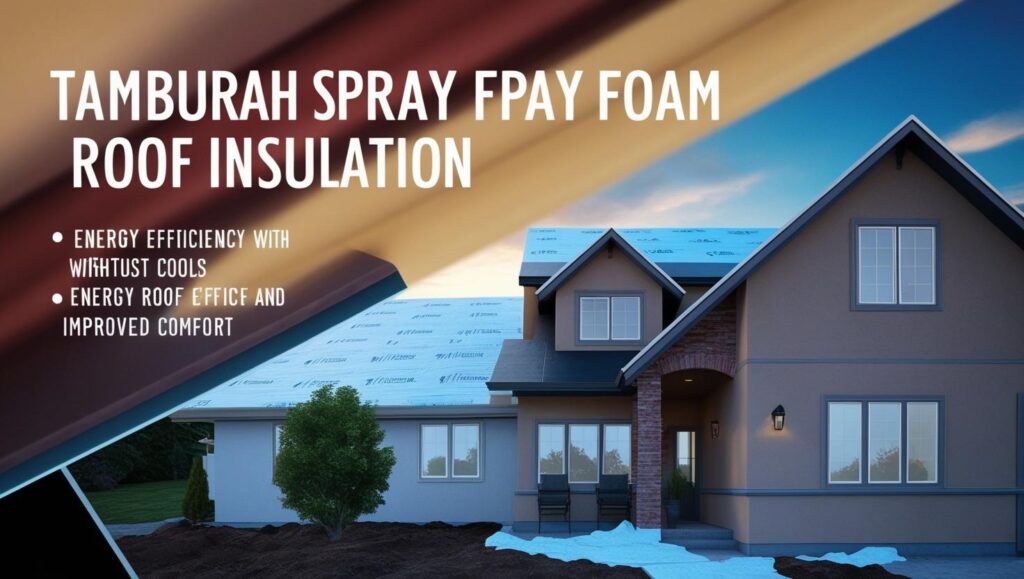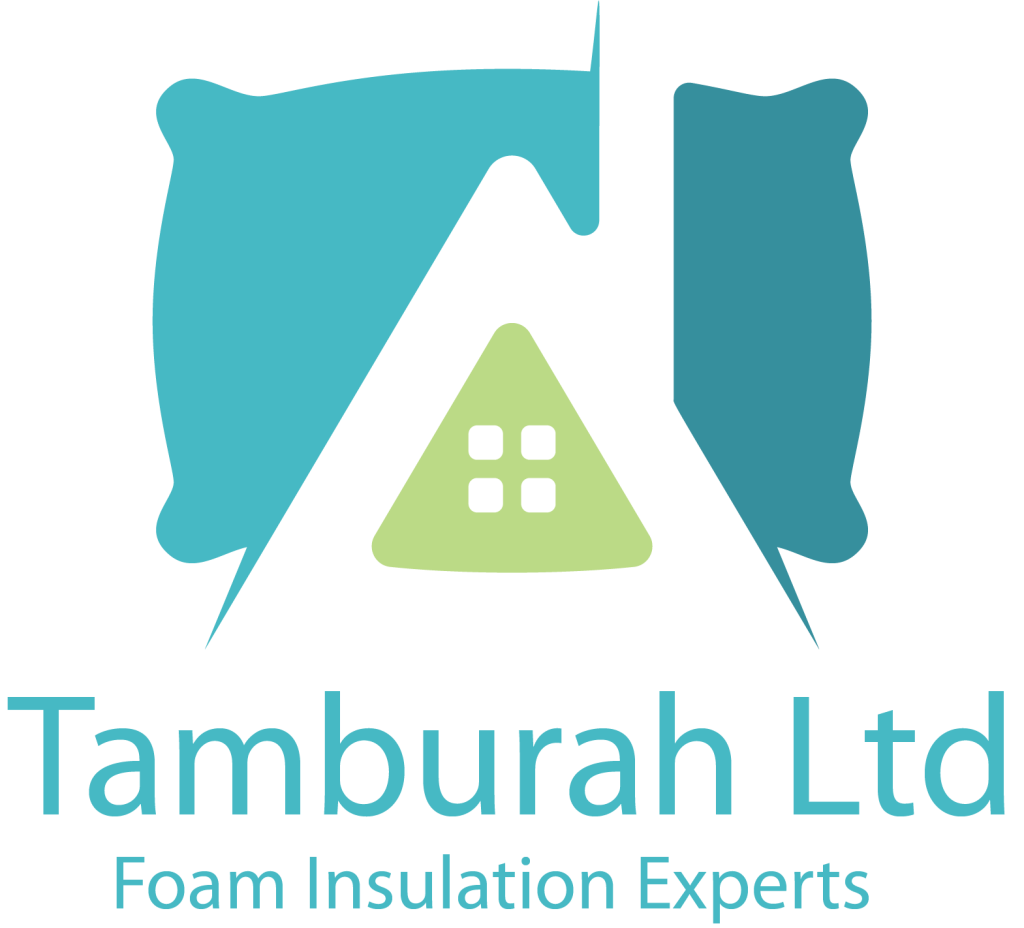
The Importance of Spray Foam Roof Insulation
When it comes to roofing solutions, spray foam roof insulation has emerged as a game-changing option. This modern insulation technique provides unparalleled benefits in energy efficiency, durability, and property value. Whether you’re a homeowner looking to reduce energy bills or a commercial property owner prioritising long-term cost savings, foam roof insulation might be the perfect solution.
What Is Spray Foam Roof Insulation?
Spray foam roof insulation is a polyurethane-based material that expands on application, forming a seamless, airtight barrier. It’s applied directly to a roof’s surface, creating a layer of insulation that prevents heat transfer, reduces moisture ingress, and protects the structure from external elements.
Unlike traditional insulation materials like fibreglass, spray foam insulation conforms to the roof’s shape, ensuring complete coverage even in hard-to-reach areas.
How Does Foam Roof Insulation Work?
The application process involves spraying a liquid mixture onto the roof, which quickly expands into a dense foam. This foam hardens into a durable layer that offers insulation, weatherproofing, and structural support.
Once applied, the foam hardens into a dense, solid layer that forms a protective barrier for the roof. This hardened foam provides multiple benefits:
- Thermal Insulation: The foam’s insulating properties prevent heat from escaping during winter and keep your interior spaces cool in the summer by creating a barrier against temperature fluctuations.
- Weatherproofing: The foam seals the roof from the elements, preventing water penetration, which can lead to roof damage, leaks, or mould growth.
- Structural Support: The foam adds strength to the roof’s surface, helping to reinforce the structure and improve its overall durability.
Types of Spray Foam Insulation
There are two main types of spray foam used for roof insulation: open-cell foam and closed-cell foam. Both types of foam are highly effective, but they differ in their density, moisture resistance, and ideal applications. Understanding the differences between the two will help you determine which is best suited for your needs.
Open-Cell Foam: Lightweight and Breathable
Open-cell spray foam is a softer, less dense form of foam, and it has a cellular structure that is open to air, which gives it a lighter feel. This type of foam is typically used for residential properties, particularly in attics and areas where air circulation is important. Here’s how it works:
- Breathability: The open-cell structure allows for a slight amount of air and moisture flow, which is beneficial for preventing trapped humidity in some areas of the roof.
- Flexibility: Open-cell foam can expand into hard-to-reach areas and is particularly effective for insulating irregular or uneven surfaces, making it ideal for residential applications.
- R-Value: While open-cell foam offers good insulation, its R-value (a measure of thermal resistance) is lower than that of closed-cell foam, meaning it may not be the best option for extreme climates or situations where a higher level of insulation is needed.
Because it is less dense and more cost-effective than closed-cell foam, open-cell foam tends to be the go-to choice for residential homes or structures in areas that don’t face extreme weather conditions.
Closed-Cell Foam: Denser and Waterproof
Closed-cell foam is the more rigid and denser option, consisting of foam cells that are fully encapsulated and do not allow air to pass through. This makes closed-cell foam ideal for commercial properties or roofs that are exposed to more demanding environmental conditions. Some key advantages of closed-cell foam include:
- Moisture Resistance: Because the foam cells are closed, closed-cell spray foam is highly resistant to moisture. This makes it an excellent option for roofs that are susceptible to water damage, such as flat roofs or areas prone to heavy rainfall.
- Higher R-Value: Closed-cell foam has a higher R-value compared to open-cell foam, providing superior thermal insulation. This makes it an excellent choice for areas that require maximum insulation, such as commercial buildings or properties in regions with extreme temperatures.
- Structural Strength: The denser nature of closed-cell foam also means it contributes more to the structural integrity of a roof. It reinforces the roof surface, making it more durable and resilient against physical stress, including high winds, heavy snow, and hail.
- Air and Vapour Barrier: In addition to preventing heat loss, closed-cell foam also serves as a barrier against both air and vapour. This dual protection helps maintain indoor air quality and prevents the build-up of moisture inside the roof, which could lead to mould or mildew.
Closed-cell foam is particularly well-suited for commercial or industrial buildings, flat roofs, and areas where weatherproofing and moisture resistance are critical. While it is typically more expensive than open-cell foam, its superior benefits often justify the higher cost for properties requiring additional protection.
The Key Benefits of Spray Foam Roof Insulation
Energy Efficiency
One of the standout benefits of spray foam roof insulation is its ability to significantly reduce energy bills. Its airtight seal prevents heat from escaping during winter and keeps interiors cool during summer.
- Reduced Energy Bills: Homeowners can save up to 30% on heating and cooling costs.
- Eco-Friendly: Lower energy consumption translates to a reduced carbon footprint.
Improved Durability
Spray foam insulation adds structural strength to your roof. Its seamless application eliminates weak spots where leaks or cracks can develop.
- Longer Roof Lifespan: Protects against weather damage, extending the life of your roof.
- Resistant to Pests and Mould: Creates a barrier that deters insects and prevents mould growth.
Noise Reduction
Foam roof insulation isn’t just practical; it enhances comfort by reducing noise pollution. Its dense structure absorbs sound, making it ideal for homes in busy urban areas or near airports.
Spray Foam Roofing Cost: Is It Worth It?
One common concern is the spray foam roofing cost. While the initial installation can be higher than traditional insulation methods, the long-term savings and benefits often outweigh the upfront expense.
Cost Breakdown
- Material Costs: Prices vary depending on the type of foam and roof size. Closed-cell foam is typically more expensive than open-cell foam.
- Labour Costs: Installation requires skilled professionals to ensure proper application.
- Return on Investment: Reduced energy bills and maintenance costs make it a cost-effective choice in the long run.
Factors Affecting the Cost
- Roof Size: Larger roofs require more material and labour.
- Roof Condition: Damaged roofs may need repairs before insulation.
- Location: Labour and material costs can vary regionally.
Choosing the Right Spray Foam Insulation for Your Roof
Selecting the best insulation depends on your specific needs and budget. Consider the following factors:
- Roof Type: Flat roofs may benefit more from closed-cell foam due to its waterproofing capabilities.
- Climate: Homes in colder climates might prefer the high R-value (thermal resistance) of spray foam.
- Professional Advice: Consult an experienced installer to determine the most suitable option for your property.
Conclusion
Spray foam roof insulation offers a host of benefits, from improving energy efficiency to enhancing the durability of your roof. While the spray foam roofing cost might seem steep initially, its long-term advantages make it a worthwhile investment.
Whether you’re looking to reduce your energy bills, improve indoor comfort, or increase your property value, spray foam insulation is a solution that pays dividends. By choosing the right type of foam and hiring experienced professionals, you can enjoy the benefits of a well-insulated roof for decades to come.
If you’re ready to make the most of spray foam insulation for your property, Tamburah is here to help. With years of experience, we specialise in providing premium foam roof insulation services designed to maximise comfort, reduce heating costs, and boost energy efficiency. Our team of experts guarantees a seamless installation and long-term performance for a truly eco-friendly, cost-effective solution. Contact Tamburah today for your free quote and start enjoying the benefits of superior insulation.
